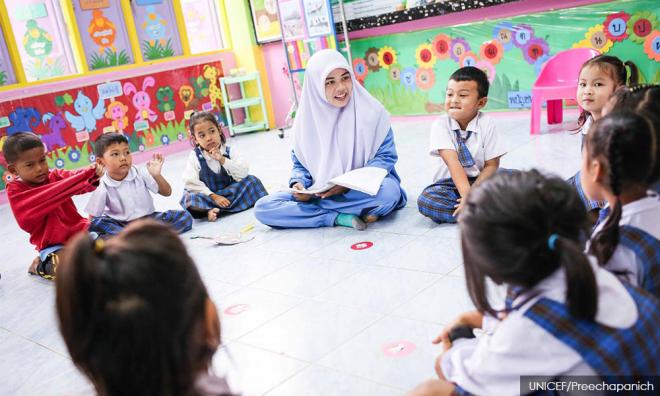
One of the raging debates in Malaysia is that of what language is best suited for education.
Learning in one’s mother tongue or first language, using a national language for all or an international language like English - determining which option will best prepare students for later in life - is a persistent and even emotionally charged question.
Linguist Kirk Person is an American who has spent most of his life in Thailand. He’s done pioneering work that even includes helping a small tribe develop their own written language.
He has also helped introduce programmes in which minority groups begin primary schooling, predominantly in their own language, before gradually integrating into the national language by their fifth or sixth year.
For Person, there is no doubt that starting a student’s education in the language they speak at home delivers significantly better results than imposing a "foreign language" upon children who can easily find themselves alienated by this system.
This, he told Malaysiakini in a recent interview, leads to a high dropout rate and functional illiteracy in many students who would have been better served by a more nurturing system.
He said it was important to note that the mother tongue referred to the language predominantly spoken at home, which was not necessarily one’s heritage language. He cited himself as an example, saying that his first language or mother tongue is English, but his heritage language is actually Swedish.
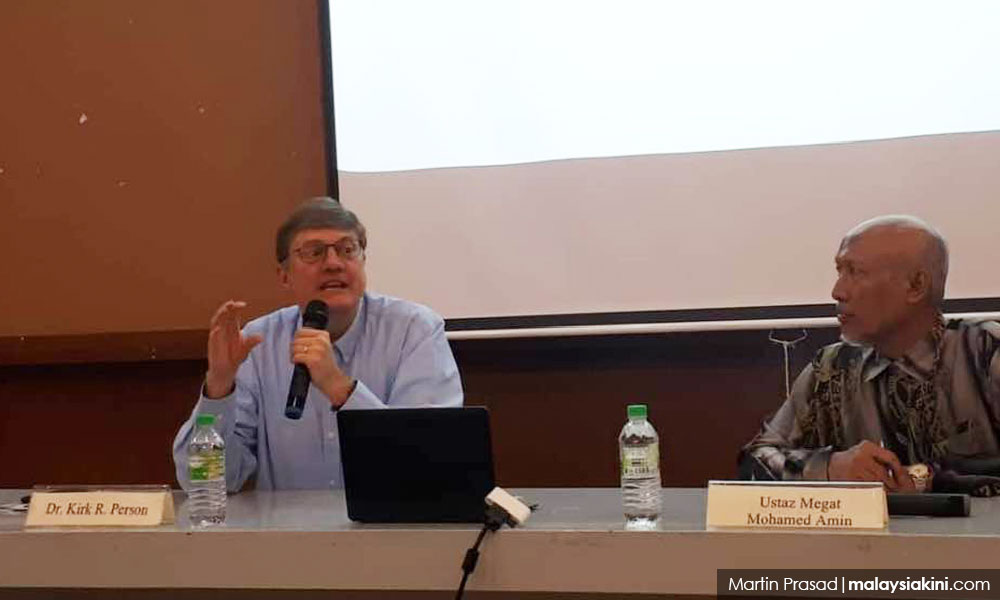
Person (above, left) is the director of External Relations at SIL International, a faith-based non-profit organisation. Founded in 1934, SIL has a staff of over 5,000 people from 89 countries of origin and is involved in more than 1,660 active language projects, representing 1.07 billion people in 162 countries.
Person has been involved in pioneering work in his role as an advisor to the Patani Malay-Thai Multilingual Education programme. The programme began as a partnership among Thailand’s Ministry of Education, Mahidol University and Unicef, back in 2006.
When matching up pilot schools with control schools - the differences are clear and the benefits manifold.
Thai scholars who assessed the programme found that it yields higher standards of Thai, improved learning of other subjects, improved test scores and much stronger community engagement in the learning process.
“The problem with imposing a top-down education system is that minority groups start to believe the lie of the majority, that they, and their culture and language, are worthless.
"That old saying comes into play - if you judge a fish by its ability to climb a tree, it will live its whole life believing that it is stupid,” Person said.
While it’s true that nation-building does involve a certain amount of streamlining of curriculum, he feels that forcing millions of children to communicate in either the national language and/or English, just results in alienation for many.
“In the Patani Malay community of southern Thailand we are discovering that after 70 years, nearly half of those who attended schools in Thai can’t read and write. Generation after generation we see that a permanent underclass develops.
“This high rate of illiteracy contributes to feelings of displacement, and most probably, to the South Thailand insurgency that has cost so many lives (an estimated 6,000-7,000 lives were lost between 2004 and 2017).
“In fact, so many teachers were killed in the insurgency (an article by The Nation Thailand last year puts the number at 184) I think this is an indication that the assimilation policies were clearly not working,” said Person.
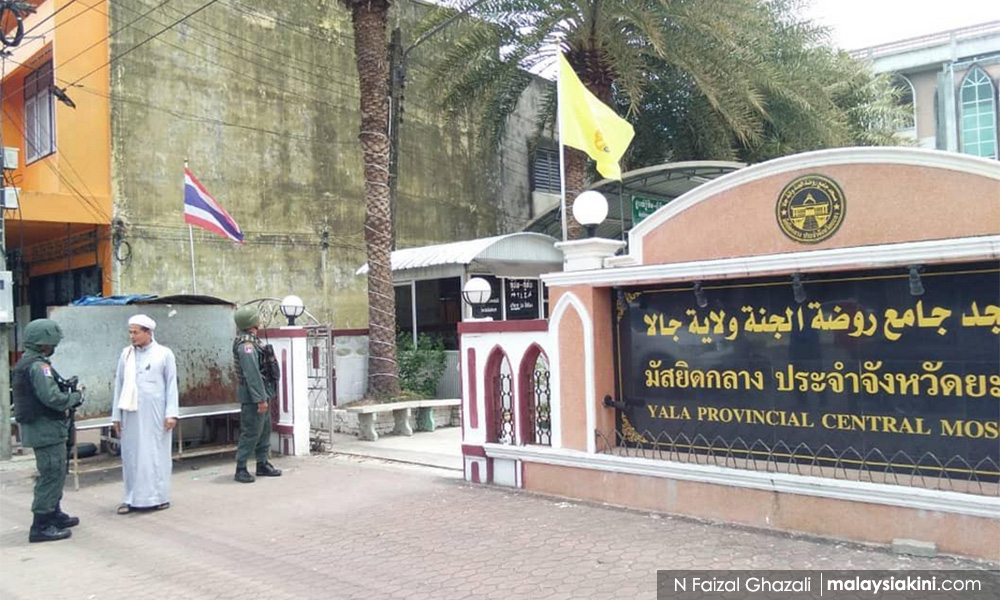
Patani Malays were targeted in national edicts under the National Culture Act in 1939 and as back as 1947, Sulong Abdul Kadir Al-Fatani launched a movement calling for autonomy, language and cultural rights and the implementation of Islamic law in the region (he was jailed and then mysteriously disappeared in 1954).
Nor is their situation unique, for of the 7,097 recognised languages in the world, 2,464 are endangered while only 23 languages dominate as they are spoken by over half the world’s population. The resulting problem is that almost 40 percent of students begin their education in a language they do not understand.
A programme tailored for the region
Still, Person was determined to help the children in the region benefit from an "experimental" educational policy.
“You don’t even need a school-based curriculum to see the positive side of first language education. Adults have also benefitted from having literacy classes in their own tongue, then the positive effect spills over to Thai and English.”
Person said that before even starting the project, he spent over a year doing research.
“We found that Malay books didn’t work as even though it’s a powerful symbol there, people don’t really use it. So we developed a Thai-based alphabet for them.”
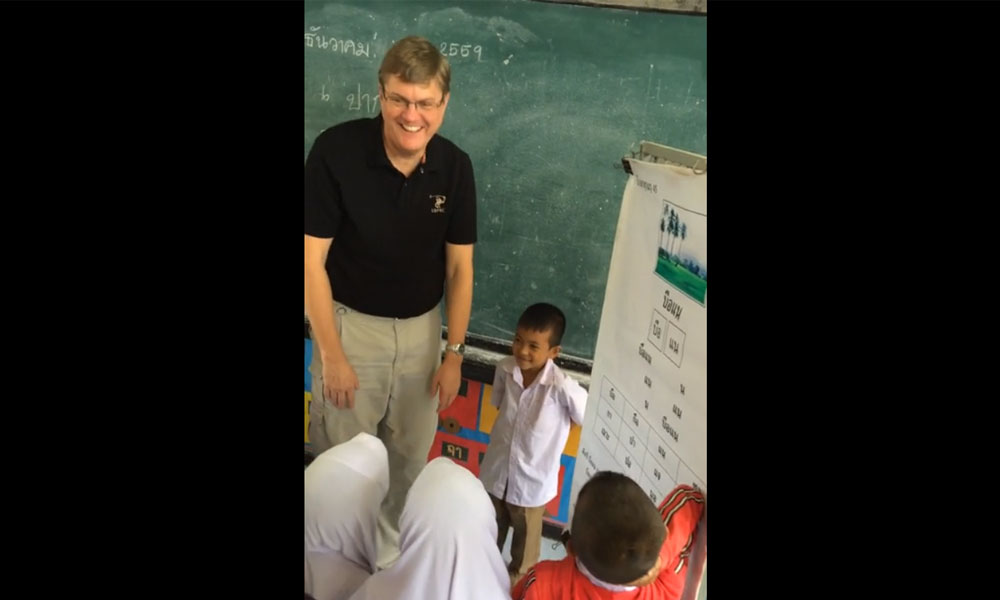
Even this was delicate work as Person and his team found that parents wanted a Thai script, religious leaders pushed for Jawi and those who had travelled and were more worldly thought that the Latin (Rumi) script would work best.
“In any country, governments should coordinate language efforts very carefully and study the outcomes of existing policies. When the government really shows respect and honour towards its minority groups, they respond by boosting all elements of society from the economy to national service.
Ironically, Person said, most Patani Malay parents feel that Thai is the most important language for their children’s future but they feel that they are not learning it properly in school.
“We don’t monitor political feelings but what we can do is compare our pilot schools to the control schools. Our students who start learning in Patani Malay, end up learning Thai better than those who go to school in a 100 percent Thai environment.
"In our pilot school, in first grade you have 250 hours of Thai, in the control school over 1,000 hours. So sheer volume is not the key."
By using a step by step, sequenced system, we can reach a stage whereby the 6th grade those in pilot schools are studying 80 percent in Thai and 20 pecent in Pattani Malay, with much better results.
Person added that the whole community began to be engaged in the work.
“We made it so that 30 percent of the programme had to be local content. We started with history and used that to build the curriculum.
“Then we started engaging the community in workshops. We even ended up crafting new songs – working with local Patani musicians and storytellers. We published two volumes of local poetry that would have been lost. All this had a knock-on effect on building confidence and pride in the community,” he said.
Developing an alphabet
In 1996, prior to working with the Patani Malays, Person had the unique experience of developing a written alphabet for a small tribe in Thailand, known as the Bisu.
Part of a larger grouping of a few thousand living in China, Myanmar, Laos and Thailand, the Thai Bisu community numbers just 700, and they live in a village 45 minutes drive south-west of Chiang Rai.
“It was a typical SIL project as the Bisu had never had a writing system before. But they were self-aware. I met the assistant headman of the village, accidentally.
"Tong was living with a different village with a different ethnic group and he was a great speaker. He saw the work I was doing and asked my wife and I to live with them to help to develop an alphabet.
"So we used the Thai alphabet as a base, but the Bisu had strange nasal sounds that were difficult for Thais."
SIL works with more than 1,200 languages and has helped developed alphabets in over 70 countries.
“In a way it’s a heavy responsibility, but it’s also exciting if you are a linguist,” said Person, whose wife is also a linguist, originally from Texas.
Tong told Person that for a while they had abandoned their clothing to fit in, but coming up with their own written script helped them build up their identity again.
“They revived it, and now there are new songs and dances in the Bisu language,” said Person.
Indeed, after he developed the alphabet for the Thai Bisu, Chinese scholars discovered the language was more widely spoken than first thought, with 6,000 in China, 700 in Myanmar and 40,000 in northern Laos.
So why should someone fight to keep these vulnerable languages going?
“Language is a deep part of people’s identity. There is a tendency to think of it as either we have a choice to stay with tradition and get left behind in economic and industrial development or abandon these roots and assimilate into a larger culture. That doesn’t have to be the choice,” Person said.
Would it work in Malaysia?
But what about the dilemma and cost of maintaining many different education systems under such a system? For example, in Malaysia alone, would we be required to have separate schools for each of our 18 Orang Asli groups in the peninsula?
Person’s colleague Tim Phillips (below) is the director of SIL Malaysia and has lived here since 2000.
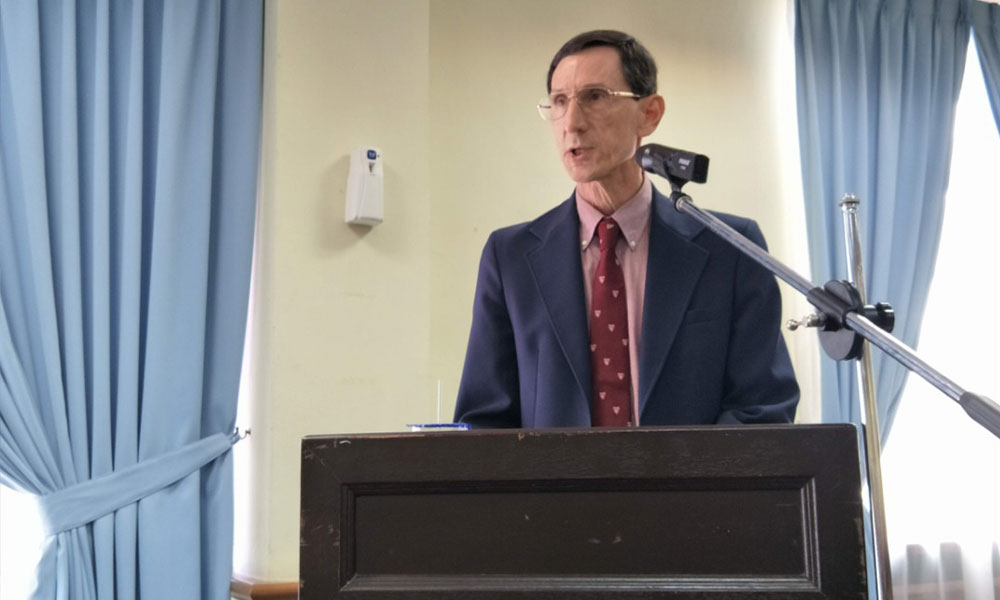
“Of course, to have separate schools for every mother tongue is not always feasible. Over here, we have over 40 languages in Sabah, over 40 in Sarawak and over 20 in the peninsula,” Phillips said.
“What we have done here is to work with Bidayuh languages and Kadazan groups and in particular, we work with an organisation like the Dayak Bidayuh National Association. We always go in by invitation as we need buy-in from the local community.”
Phillips recognises that there are indeed many challenges ahead for smaller linguistic groups, but he believes that those in Malaysia have the vitality to survive.
“There are multiple threats to the smaller groups. They can get so small and they intermarry and are forced to leave their traditional lands. Pretty soon, there is nobody speaking their languages.
"But I believe Malaysia’s Orang Asli groups are surprisingly vital for their size. If you learn their words, they would prefer to converse with you in that language."
Phillips cited the example of the Lanoh, a small group based in Perak.
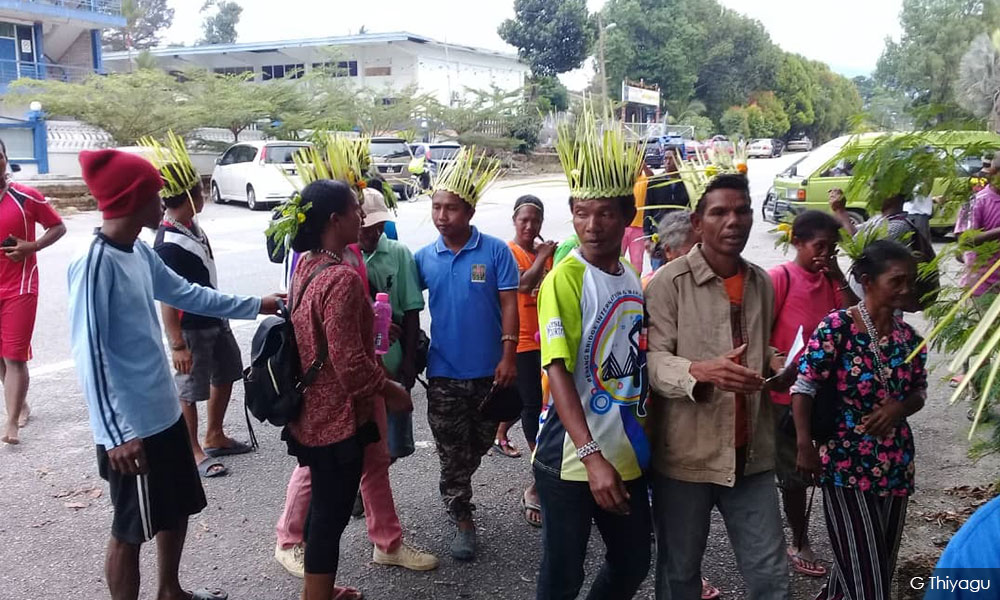
“The Temiar (people) give them some pressure and they only number a few hundred, but they are very proud of who they are. They will not give up their language,” he said.
Philips said such cultures will hang on despite the phenomenon of diglossia – having to borrow technical terms from another language – such as car or computer – because one’s own language does not originally have such terms.
He admitted that a lot of work needs to be done to change mindsets.
“A lot of the research is counter-intuitive. You think that we just keep teaching young people the national language and that will work best, but it doesn’t work out that way. And that’s the entrenched thinking we have to counter.”
“There is also politics behind everything, and it is delicate for an NGO to navigate - we are guests and want to serve.”
Nonetheless, the two men say they are keen to carry on living on the other side of the world from their original homes and work on these linguistic programmes.
“There are times when I am disappointed, but what keeps me going is that we know these programmes work. It would be irresponsible of us - when you know that you have the answer, even though it’s a tough battle, you can’t sit there and say and do nothing,” Philips said. - Mkini



No comments:
Post a Comment
Note: Only a member of this blog may post a comment.